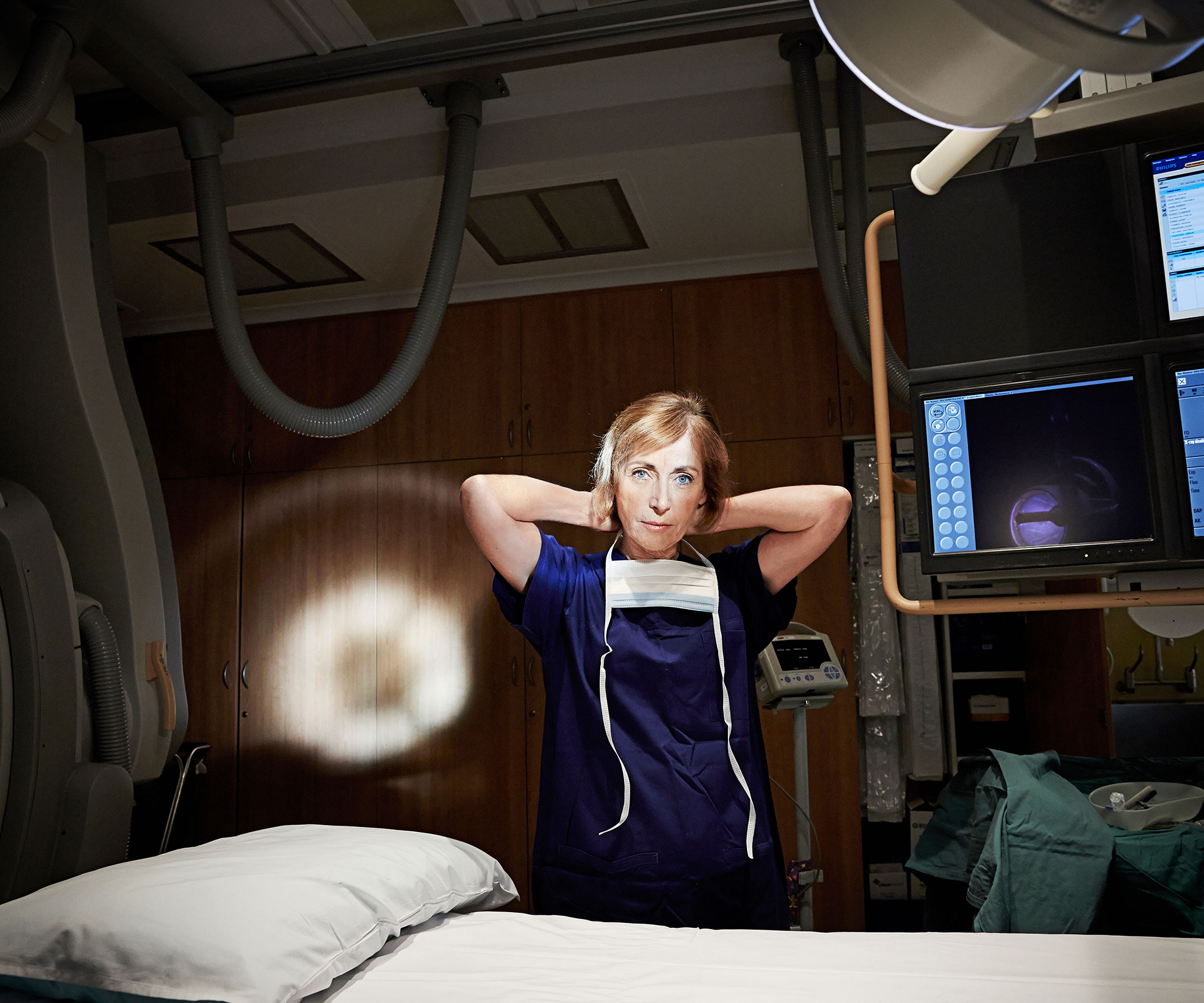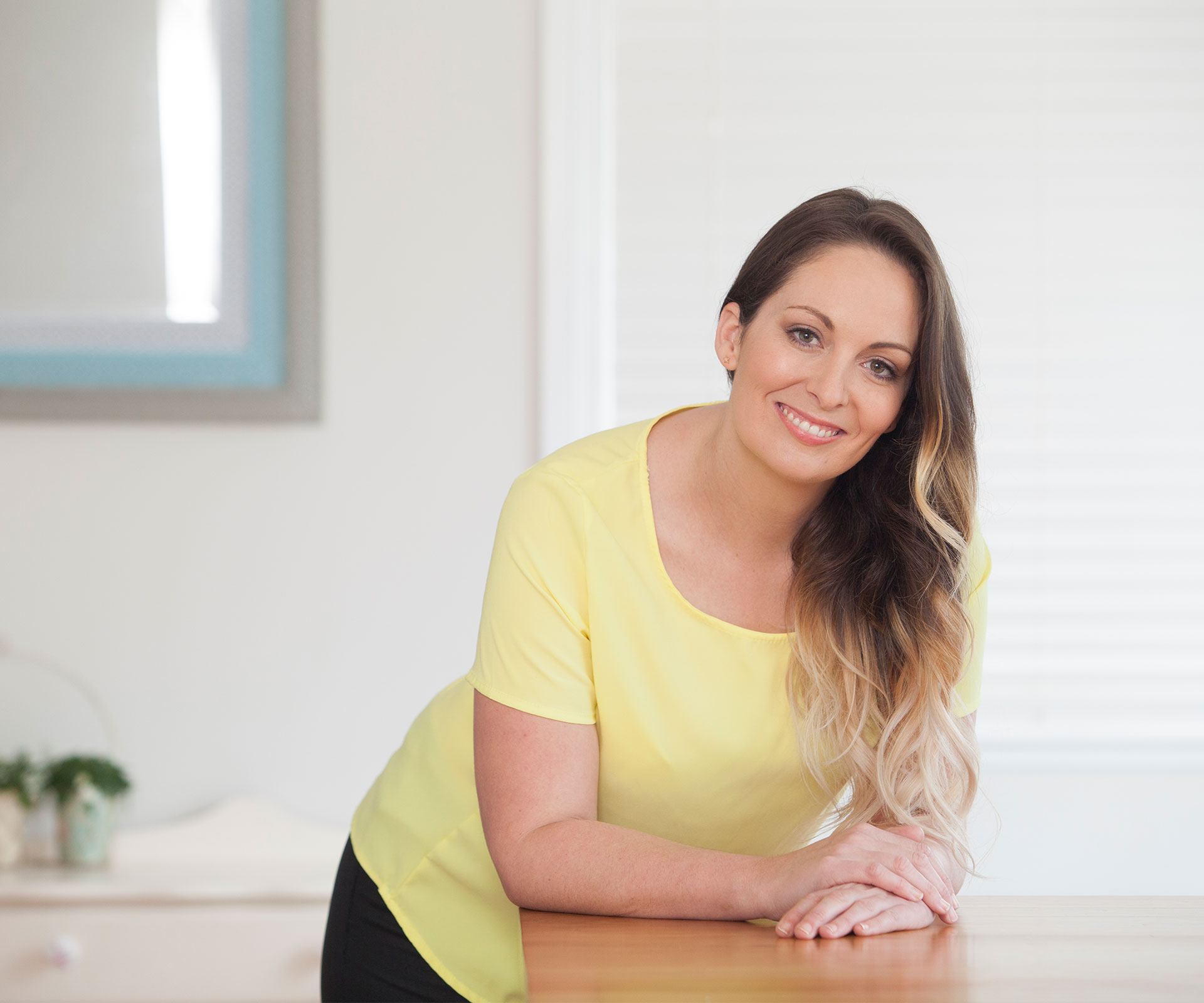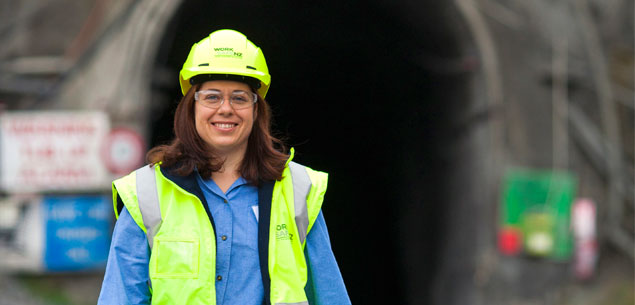Warning: Graphic content.
Caroline Tan was a studious trainee surgeon working in a large teaching hospital in Melbourne when an unwanted sexual encounter irrevocably derailed her medical career.
Her supervisor, neurosurgeon Dr Chris Xenos, had invited her to his private rooms for some extra tuition after her shift ended. It was late, but having refused previous requests and not wishing to appear unappreciative, Caroline decided to go.
The pair met in the car park and made small talk about artwork inside before entering his room. Caroline’s back was turned when Dr Xenos suddenly came up behind her, spun her around and embraced her. He kissed her on the lips, put his hand on her breast and pinned her against his desk. As Caroline twisted in a bid to free herself from his grasp, she saw his erect penis sticking out of his fly.
“Do you want to go down on this?” he asked, as she escaped his grasp. Heart racing and mortified, she blurted, “How could you?”, and fled the room.
Ten years on from the incident and despite winning a high-profile sexual harassment case against Dr Xenos, Dr Tan says her career has still not recovered. Despite her best efforts, she has never secured a job in the public health system – even on occasions when she’s been the only applicant.
On paper, her credentials are impeccable. She has excellent references, has passed every exam with flying colours and, since 2008, has been a fellow of the Royal Australasian College of Surgeons (RACS) and a registered specialist.
Her case inspired vascular surgeon, Dr Gabrielle McMullin to speak out last month about the rampant sexism allegedly blighting her profession in Australia. Citing Caroline Tan’s experience, Dr McMullin claimed she freely advised trainee female surgeons to submit to the unwanted sexual advances of their superiors, rather than lodge a complaint, if they wished to get ahead in their careers. “[Caroline’s] career was ruined by this one guy asking for sex,” she told media at the time. “And realistically, she would have been much better to have given him a blow job on that night. What I tell my trainees is that if you are approached for sex, probably the safest thing to do in terms of your career is to comply with the request.”

Dr Caroline Tan won a sexual harassment case against Melbourne neurosurgeon Dr Chris Xenos.
So just how sexist are surgeons? And how typical is the experience of Dr Tan? Is hers an isolated incident or the tip of an iceberg? And how pervasive is the culture of silence that surrounds sexual harassment in the surgical profession?
Moreover, can it really be possible that a handful of male surgeons – arguably among the best educated men around – have no more enlightened attitudes towards women than your average nightclub sleaze?
“The woman who speaks up gets a terrible time,” Dr McMullin says. “In Caroline’s case, the College of Surgeons never gave her any support. They made her continue working with her abuser and he would say things to her like, ‘Just get over it.’ They withheld her exams for a year and then she couldn’t get a job.”
Yet the college cast doubt on whether it received a complaint from Caroline at the time. While Dr Tan was invited to take part in this article, she declined. Tired of the backlash she receives from male members of her profession whenever she speaks out, she preferred not to go on the record, stating only that previous experience taught her to have “no confidence that my profession will treat me fairly”.

Melbourne neurosurgeon Dr Chris Xenos in 2008.
And it would seem she has a point. Within days of Dr McMullin’s comments – and the media storm they created – neurosurgeon Dr Graham Jeffs took to Twitter to accuse Dr Tan of reviving an unproven slur levelled at all male surgeons. Others have publicly denied there’s a problem.
Dr Chris Xenos, meanwhile, is still working as a neurosurgeon at Monash Medical Centre in Melbourne. Since the tribunal case, he is understood to have served as acting head of his department. In court, he denied Dr Tan’s version of events and accused her of making it up to distract attention from her sub-standard work.
Supported by colleagues and friends, who described him in court as “an exemplary role model and devoted to his wife and children”, Dr Xenos was nevertheless found by the judge to have “deliberately and falsely denied the harassment” and “attempted to completely smear [Dr Tan’s] character”.
A month on from her ‘blow job’ comment, Dr McMullin, who is based in Sydney, acknowledges that her remarks were intentionally provocative. They quickly made headlines, sparked debate and ruffled many feathers in the surgical community. Looking back, she says she has no regrets, as her actions drew much-needed attention to the issue at stake. “It’s unacceptable that people turn a blind eye to sexual harassment,” she says.
At first, the RACS – the organisation responsible for the training of surgeons – went on the offence, with President Michael Grigg describing Dr Gabrielle McMullin’s comments as “appalling” and insulting to male surgeons. Within a few days, however, the college changed its tune. It announced it had “moved swiftly to establish an expert advisory group to deal with concerns of bullying, harassment and discrimination”. And now that the dust is settling, Professor Grigg’s view on the controversy appears to have softened. “To be honest, I think shining a light on this issue isn’t a bad thing,”. “[Dr McMullin’s comments] certainly got the attention of the entire profession.”
Dr Helen Szoke, CEO of Oxfam Australia, has agreed to be deputy chair of the College of Surgeons’ new independent expert advisory group. A former Victorian Equal Opportunity and Human Rights Commissioner, she denies it is a tokenistic response. “I’ve gone into this and, in a sense, put my own name and reputation into it, with a strong view that this isn’t just about getting this issue off the front page,” she says.
Professor Grigg concedes there is work to be done, but argues some surgeons are not even aware that their behaviour constitutes sexual harassment.
“People say silly little things like, ‘Don’t be a princess,’” he says. “I don’t think they are aware they are engaging in sexual harassment. I think awareness of things people say may be one of the positive things that comes out of this.”
According to Melbourne medical registrar Dr Ashleigh Witt, the culture of silence over harassment in medicine is corrosive. “Let’s consider the hundreds of other cases [aside from Dr Tan’s],” she writes in her personal blog. “The ones who didn’t make the news. The ones who, excuse my vulgarity, ‘got on their knees’ because it was easier. The ones too scared to tell anyone their boss made a pass at them.”
Dr Witt, who recounts being told by a surgical registrar to dye her hair dark if she wanted to be taken seriously, told of her frustration at being objectified at work. “Sexual harassment is every time you call me ‘blondie’ or ‘Barbie’, every time you comment on my appearance rather than my skill-set, every time you call me a ‘lady doctor’ instead of a ‘doctor’,” she said.
Meanwhile, an unnamed surgeon quit a major Melbourne hospital last month amid concerns over his performance and allegations of sexual harassment. It didn’t take medical students long to figure out who he was.
“Everyone who has been a female med student there in the past 10 years can work out who it is,” said one. “During a surgery ‘tute’ when I was in third year [he said to one female student], ‘Sorry, I couldn’t hear your answer because I was staring at your breasts.’”
Not all women, however, agree that there’s a significant problem. One well-respected female surgeon, who did not wish to be named, said she has enjoyed a “very positive” experience as one of only a handful of women in her speciality. “If anything, I’ve seen the complete opposite,” she says. “No one has ever tried to inappropriately deal with me. I’ve been lucky to be around professional kind of people.”

Surgeon Gabrielle McMullin stands by her recent remarks claiming sexism is rampant within the surgical community.
Likewise, Kate Drummond, a neurosurgeon and deputy chair of the RACS’ Women in Surgery committee, claimed her experience had been one “overwhelmingly of collegiality, satisfaction and friendship” in an online piece for the Medical Journal of Australia. She suggested Dr McMullin’s comments would deter women from becoming surgeons and the suggestion that abuse was endemic was “untrue, unhelpful
and damaging”.
It is clear, nonetheless, that Dr McMullin’s comments have left many rattled and uncomfortable. When we phoned the office of Dr Chris Xenos to offer him the opportunity to tell his side of the story, a staff member informed us he was on leave, refused to pass on a message and hung up. When we contacted the media unit of South Eastern Sydney Local Health District to ask for permission to photograph Dr McMullin at Sutherland Hospital, which is down the road from her office, we were refused. Normally, it would be okay, the media officer told us, but because of who we were photographing and her recent comments, it was a no.
While all the cases identified in this story took place across the Tasman – and opinions on the topic are divided, statistics paint a grim picture. The New Zealand Equal Employment Opportunities Trust (EEO) states one in three women have been victims of sexual harassment – and 70 per cent of those have experienced it in the workplace. Figures from Australia reveal almost one in six women say they’ve received inappropriate, sexually explicit emails or text messages in the workplace.
“Sexual harassment can occur in all types of workplaces – regardless of industry or workplace size,” says Australian Sex Discrimination Commissioner Elizabeth Broderick. “Ensuring women occupy positions of power equally with men is key to creating a safe and inclusive culture for both women and men.”
And therein lies a problem: supervising surgeons wield enormous influence over the progression of their trainees, and the vast majority of supervisors are men.
The RACS says it provides “a lot of opportunities for people to complain,” says Professor Grigg, who then admits, “Not many people avail themselves of those opportunities. Maybe we are not doing enough to make people come forward. [That’s why] we think the time has come to expose ourselves to review.”
Dr Szoke is confident there’s now an appetite for real change at the 88-year-old college.“I think if the Royal Australasian College of Surgeons accepts there is enough of a case to set up an expert group, it has to accept then that we’ve got a really important job to do,” Dr Szoke says.
Professor Grigg says the College is prepared to make significant changes and will spend hundreds of thousands of dollars funding the expert advisory group’s work. “We hope there will be change,” he says. Make no mistake, this article is not suggesting sexism is confined to or even necessarily worse in the surgical profession. Where there’s a culture that permits, encourages or fails to recognise and penalise sexism, it will keep happening.
Clearly, higher education doesn’t preclude it. It has been argued that top footballers, for example, who disrespect or abuse women, should be explicitly taught about equal rights because they may have gone straight from school into a glorified profession where women are seen as playthings or a perk of the job.
Yet surgeons represent the academic elite. Surely these men know women are their equals in both intelligence and ability?
Some argue that the Royal Australasian College of Surgeons needs to undergo a cultural shift. Dr Tan told The Age newspaper it was “an Anglo-Saxon old boys’ club” that favours men. Professor Grigg insists the description is “unfair”. “In the past, it was very much a male-dominated career,” he says. “In part, that’s because it was seen as a demanding, time-intensive type of avenue; it was a career that just wasn’t attractive to people who were going to be involved in bringing up a family.”
Fifteen years ago, says Professor Grigg, just five per cent of surgeons were female. Today, it is nearer 10 per cent. And 27 per cent of the next generation of trainees are women. “Times are changing,” he says.
Back at her private practice in Melbourne, Dr Caroline Tan is taking shelter from the storm of controversy around her case. She would love to work in the public sector but knows from bitter experience this is unlikely to happen.
Despite the furore her comments caused, Dr McMullin continues to stand by what she said and supports Dr Tan as well as other women who have shared their stories. She says there are many good male surgeons, but rejects suggestions which have arisen that the issues of bullying and harassment are gender neutral. “If someone drags a trainee into their room and says [perform a sexual act on me],” she says, “that’s not gender neutral.”
While her comments may seem shocking, it could be that Dr McMullin’s stance has been a necessary antecedent for meaningful change. A more anodyne comment about sexism would probably not, after all, have led to the set-up of an independent inquiry.
Yet is it not unfortunate that this was the price of action in a profession that is dominated by some of Australasia’s greatest minds? “Yes,” replies Dr Helen Szoke, who is otherwise careful to reserve judgement on the issue she is now investigating.
“In a word, yes.”
Words by: Alana Landsberry
Photos: Fairfax Media, AAP, Thinkstock and Getty Images


